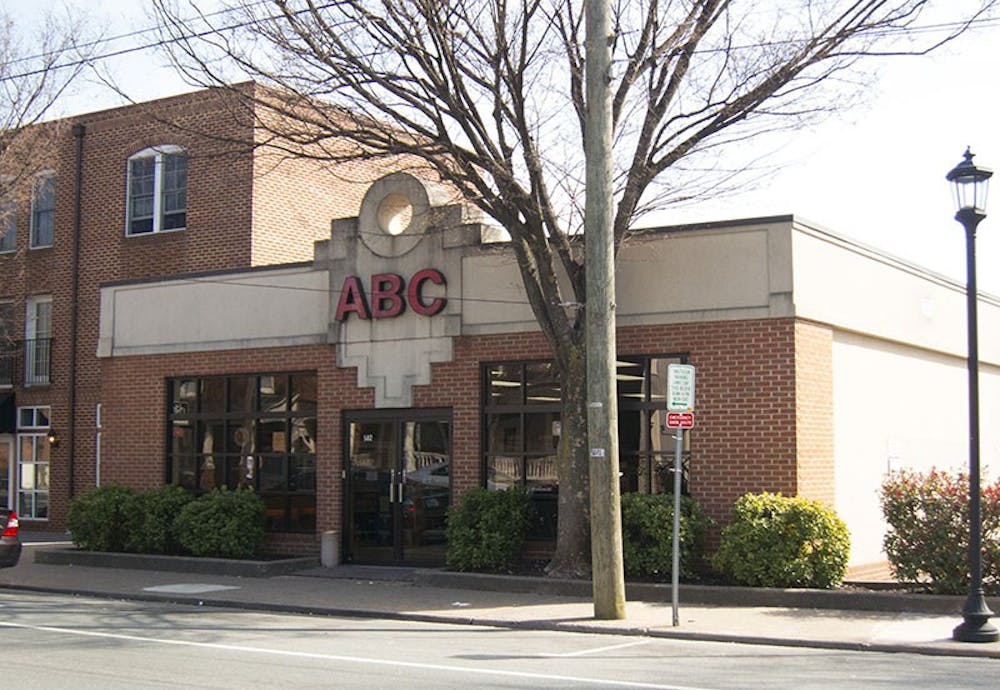Following the April arrest of a University student attempting to buy sparkling water at a local grocery store, a Charlottesville-based advocacy group, the Rutherford Institute, is encouraging a series of large changes to the Virginia Department of Alcoholic Beverage Control.
Third-year College student Elizabeth Daly was walking to her car on April 11 when a group of plainclothes ABC agents, who believed she was carrying a case of beer, surrounded her car, one of them drawing a gun. Frightened, Daly and two friends fled the parking lot, grazing two of the agents with her vehicle as she did.
After the incident, Daly was arrested and charged with three felonies, all of which were later dismissed.
“The incident that took place with the ABC was extremely troubling and disturbing for me personally,” Daly said in an email. “I support any action to help ensure that this would not happen to anyone again.”
A press release on the institute’s website said the incident was dismissed as an embarrassing mistake on the part of the agents and has not led to substantive changes.
The agency did announce in July they would now require at least one uniformed officer to be involved in similar operations.
“When conducting these types of operations, there is now at least one ABC Agent in a police uniform to act as a contact person once the plainclothes agent has developed reasonable suspicion or probable cause to approach individuals they believe have violated the law,” Virginia ABC spokesperson Valerie Hubbard said in an email. “We believe that this change will further clarify the nature of the stop by law enforcement and help put citizens who are approached at ease regarding the identity of the officer or officers.”
Rutherford Institute President John Whitehead said the April arrest constituted a violation of the Fourth Amendment, which protects citizens “against unreasonable searches and seizures.”
“Given that the ABC usually uses a reasonable suspicion standard, that doesn’t work constitutionally,” Whitehead said. “Any time the government does surveillance on you and you are a suspect like these three young women were in that car that day, you have to have probable cause, which means that they had to have some evidence, which they didn’t, obviously.”
Current jurisprudence disagrees with Whitehead, however. In Terry v. Ohio, the Supreme Court upheld the “reasonable suspicion” standard undercover ABC agents use.
Instead of the ongoing internal review, being conducted by Virginia State Police, Whitehead proposes a review board for oversight of the ABC. The board would call for input from legislators, citizens and Constitutional experts and would propose substantive changes to ABC policies, Whitehead said.
The organization is also calling for changes to the training process of agents, including education in personal privacy rights taught by constitutional lawyers, rather than fellow police officers, Whitehead said.
Though this institute’s press release focused specifically on problems related to the ABC, Whitehead said this case is symptomatic of a large-scale dissolution of personal privacy rights.
“Unfortunately, most of the people I work with across the country — and I work with a lot of constitutional experts — they feel that the Fourth Amendment is … some would say on life support, some would say dead,” he said. “I’d say more on life support, unless we can turn that around, but I’m not sure we can do that now.”
The Virginia ABC department’s ongoing review by state police was requested by ABC Chairman Neal Insley.
“[Virginia ABC] agreed to conduct an independent administrative review of the facts surrounding the incident,” Hubbard said. “We are waiting for the results of this review before making any comment about enforcement in the Charlottesville area.”
This article was updated Sept. 4







